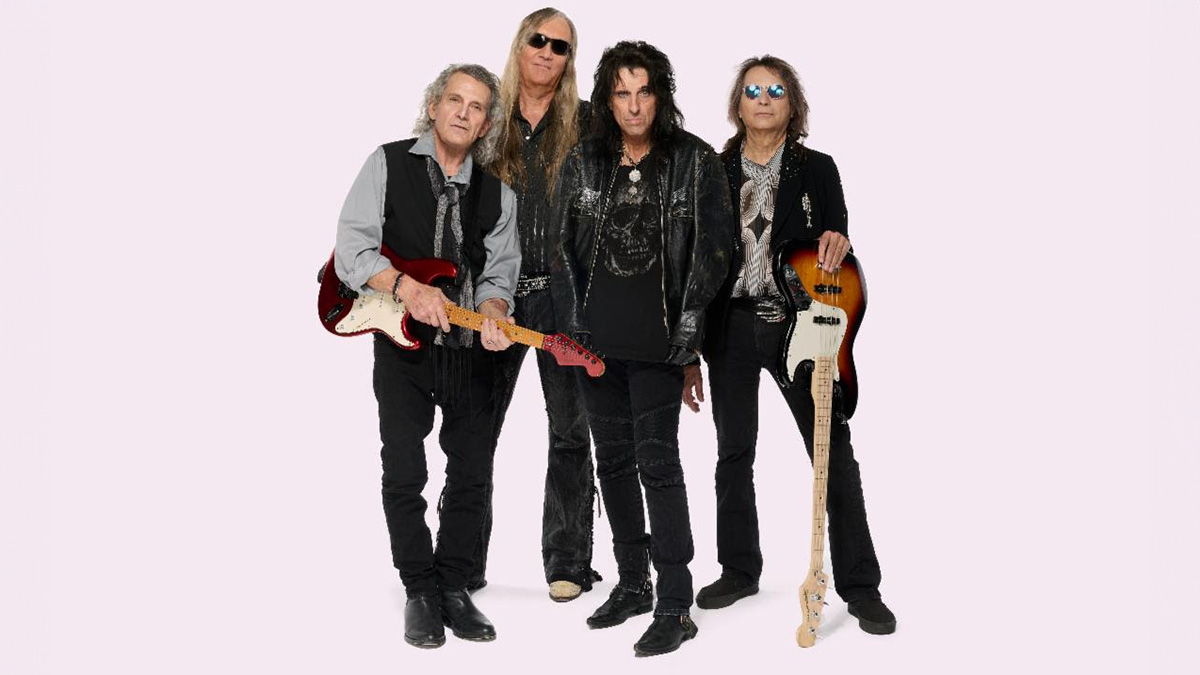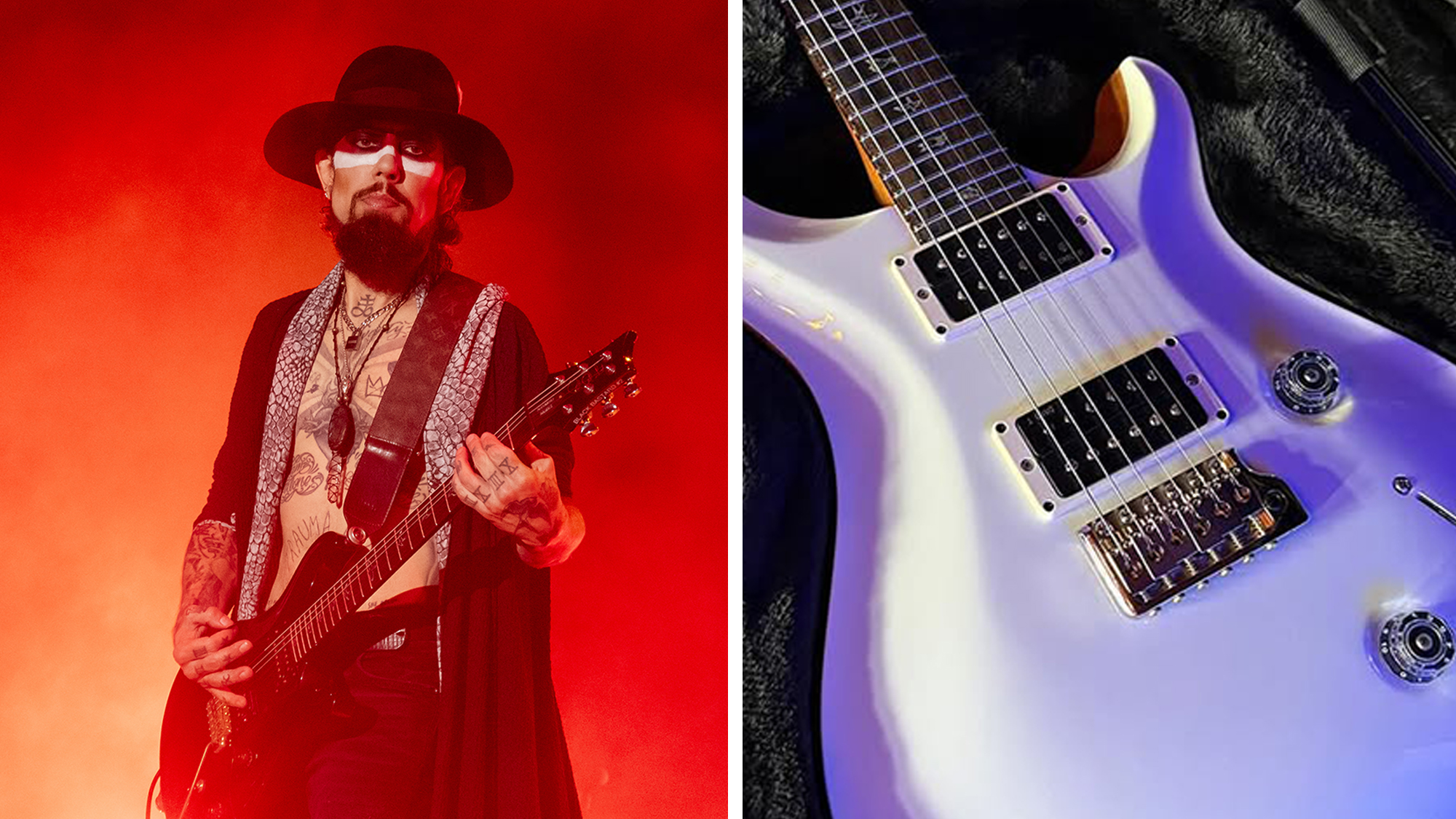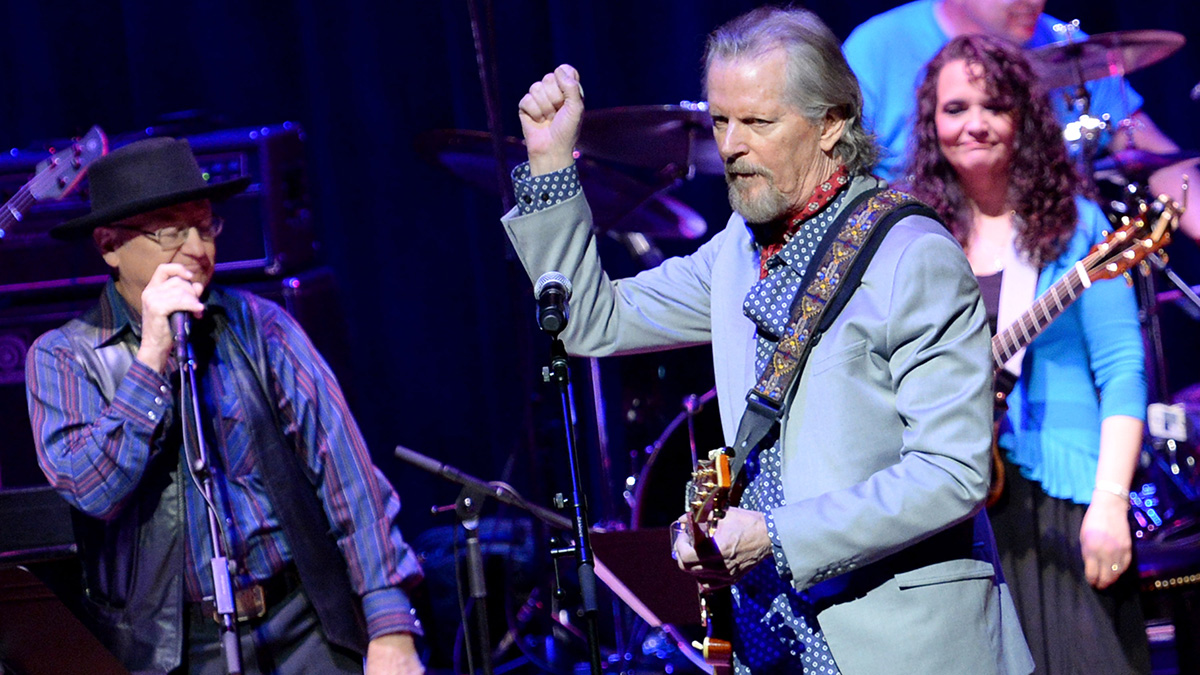Billy Sheehan names 5 of his favorite bass albums
Sheehan is one of the world’s most accomplished bassists - so we can all learn from the five albums that influenced him

Whether you take your Billy Sheehan as a member of Mr Big, as a solo artist or as a session gun for hire, he needs little introduction. A master of his instrument to almost otherworldly levels, Sheehan has earned a reputation as one of the world’s most accomplished bassists – so we can all learn from the five albums that influenced him.
1. Yardbirds - Having A Rave-Up (1965)
"Paul Samwell-Smith was one of my first influences as a bass player. The US version of the LP had the whole band on the cover, and Paul was holding an Epiphone Rivoli bass with black nylon tapewound strings - a duplicate of which I have at my home right now. It sounds just like the bass on the album: the strings have a really cool, unique tone to them.
"I love it when bass players step out of the herd and try different things. His playing was all great and spectacular, but on side two were some live versions of Here It Is, I’m A Man and She’s So Respectable. On all of them, he just blazes, and the bass has this deep low end because of the neck pickup that washes out the compression from the master mix. It takes over the whole band."
2. Vanilla Fudge - Vanilla Fudge (1967)
"Tim Bogert was a huge influence on me and a lot of other players. Vanilla Fudge were an amazing band. Their first album was all covers, and Tim was all over the place on the bass - but everything he did worked. It was such an inspiration to me, because it was an integral part of the arrangement of the song.
"Years later I was lucky enough to befriend Tim and I asked him about it, and he said that basically it was a psychedelic version of James Jamerson, which made a lot of sense to me. They had a very heavy Motown influence: go and listen to Jamerson after you’ve heard Vanilla Fudge, and you’ll see what I mean. He was a huge influence, and I like to play those albums to people as much as I can."
3. Jethro Tull - Stand Up (1969)
"Glenn Cornick was another great player who had a Rivoli bass, with that amazing neck pickup. He played great, great bass solos in Bourée, the Bach piece that Ian Anderson played flute on. He had a similar tone to Paul Samwell-Smith and, while it wasn’t a tone that I went for personally, I liked it because it had a real cool, woody body to it. He did some great playing on that record.
"After this album, which I just loved, I went back and got This Was (1968), which was just great. Aqualung (1971) was okay, but then they lost me, which wasn’t uncommon for me - a lot of bands had amazing first records but they’d lost me by the fourth. I don’t know if it was because of me or because of them!"
Get The Pick Newsletter
All the latest guitar news, interviews, lessons, reviews, deals and more, direct to your inbox!
4. Jaco Pastorius - Jaco Pastorius (1976)
"I think Jaco really defined what a bass player should be about, in that he played songs on the record and solo pieces that were actual pieces of music. His tone and approach were legendary, of course. I daresay that to this day it’s difficult for fretless players to play without people instantly thinking of Jaco. As soon as you hear that note, you go ‘Jaco!’
"I play a bit of fretless: I’ve recorded fretless on two songs in my life. We did the Cat Stevens song Wild World and a very famous fretless player called me up and congratulated me on my playing on the song, because it was a hit on the radio - and I said, ‘Well, there’s only one problem: it’s my regular bass, not a fretless!’ I do a lot of bending: we covered Birdland, and when it goes D-C-D, I bend the C up to the D, just to mimic that fretless tonality. Sometimes the bass just lands like that."
5. The Beatles - Sgt. Pepper’s Lonely Hearts Club Band (1967)
"When I do clinics, I always tell people ‘Go and learn the whole of Sgt. Pepper – you’ll come out of it a better bass player.' McCartney was a singing bass player - I think all of these might be, although I don’t know much Jaco and Paul Samwell-Smith sang. McCartney’s bass playing was unorthodox and wild, he was all over the place. It was fantastically perfect, musically.
"I have some bootlegs of the sessions and again, he had that neck pickup with that super-deep low tone: you can only hear the fundamental of the notes. It’s like he’s running a single oscillator, real down low. He was just a great player with a real sense of how to use the bass in a really musical way. It was brilliant."
Bass Player is the world’s most comprehensive, trusted and insightful bass publication for passionate bassists and active musicians of all ages. Whatever your ability, BP has the interviews, reviews and lessons that will make you a better bass player. We go behind the scenes with bass manufacturers, ask a stellar crew of bass players for their advice, and bring you insights into pretty much every style of bass playing that exists, from reggae to jazz to metal and beyond. The gear we review ranges from the affordable to the upmarket and we maximise the opportunity to evolve our playing with the best teachers on the planet.










